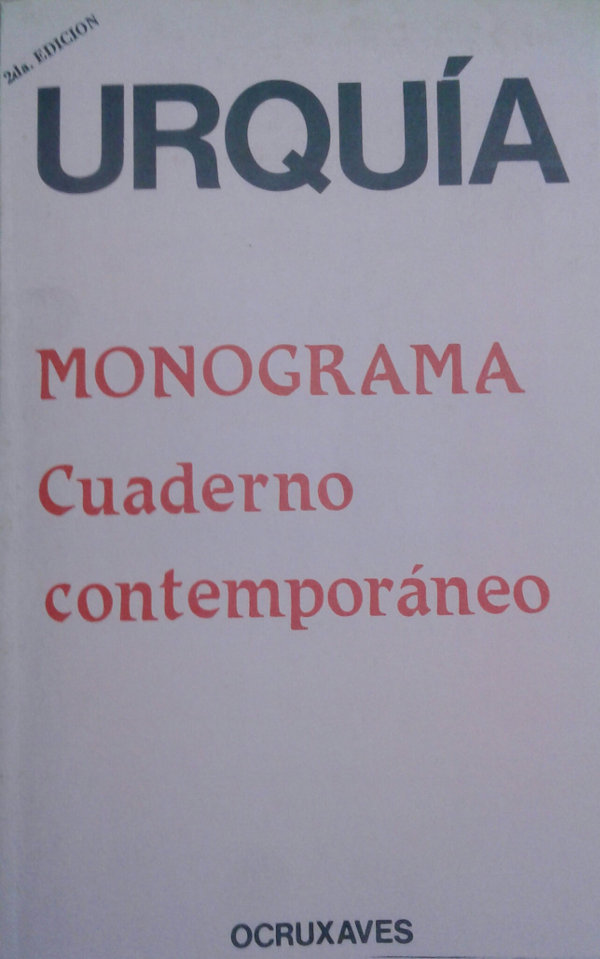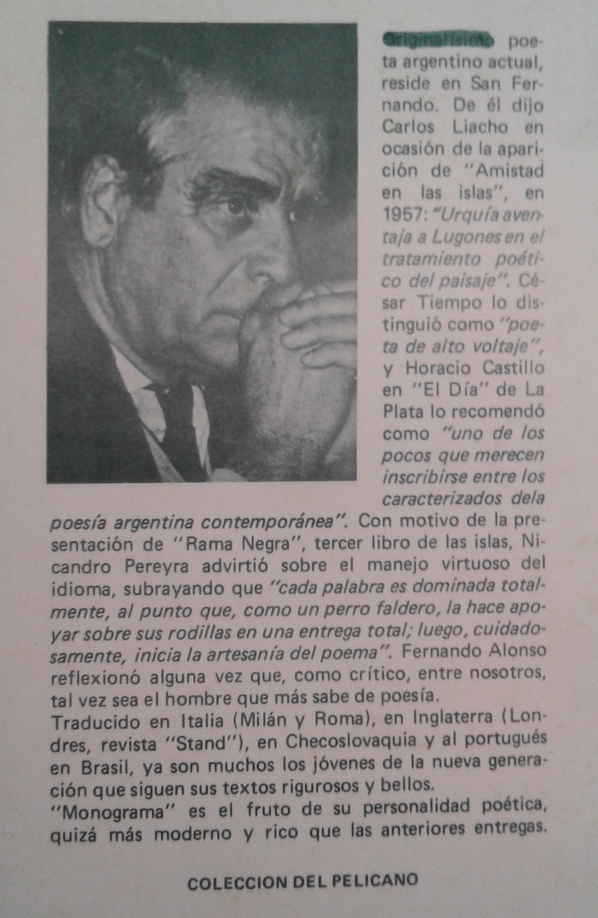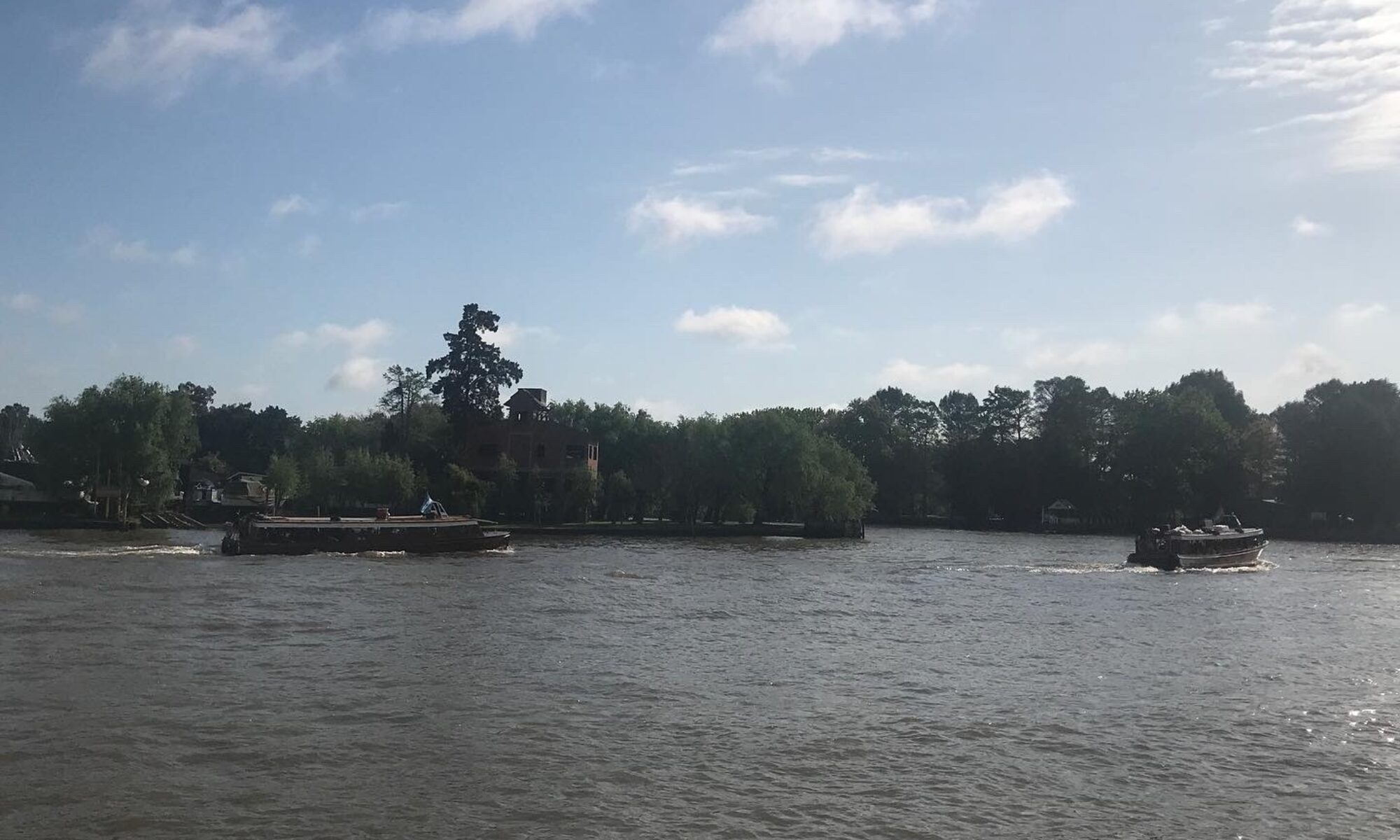
From ‘Monogram- Contemporary writing book’,
by Carlos Enrique Urquía,
Ocruxaves,1987.
‘THE STICH WITHOUT A KNOT’
Portions of XXth. Century
‘I have come to the world
not to betray’
C.E.U.
‘All the things pronounce names’
Antonio Porchia
The poem
The bird turned its pasteboard
the light folded
A sun document flew
and wetnesses of feathers.
Of the chest
in the middle of the poem.
The bird beaked the music of the planet
it beaked the night
a hearty lukewarm electricity.
THE REVELATIONS
Carlos has a dream
But he can’t decipher
What is that unplastered bird
That insists, naked, round spring.
Carlos has a kiss
But he doesn’t find out
Why the woman who visits his body
Takes away the footsteps he uses to stroll on life.
Carlos has a son
But he doesn’t understand
How his legs go in other trousers
And his head combs with the hair of freedom.
Carlos has a dead one
But he doesn’t distinguish
How his father is undone in infinity
And his mother escapes from the customs of the heart.
HABEAS CORPUS
Wherever I go
I take my body.
I don’t know if it’s a refuge
or a sign
or a jail
or a collage
or a coffin.
My body
that has lent me the world.
Viscus of water and bones
so inside
amidst things
intimate and external.
People look at it
stumble it or put it concepts
people who believe it’s mine
not knowing the secret.
Wherever I go
I take my body.
And it doesn’t say a word
docile, awkward and loose.
Healthy or ill
young and old
small and immense
alive or dead.
It is also the worst nausea
and the best kiss.
And I go on carrying it.
I take care not to waste it
that is to say
I economy it
as if it were time.
Outlander
Everywhere,
suspended between
time
and eternity.
Herman Hesse
Quevedo, constant beyond death
What are four centuries for a Quevedo
Of upright rage and smashed garden
Seizer of screwed adjective
Iterative and entangled plastic.
Francisco de Villegas y Quevedo
Wronging and talking, hoisted
By sublime talent, emulsified
By so much life and death over his finger.
Sipping the hard wine in the vineyard
Biting the chiselled virgin verse
Correcting with sarcasm and mockery.
What are four centuries to a decimated
Courtier of anise and acid dust.
Dust will you be, but dust in love.

traducción de Doyle, Liliana




